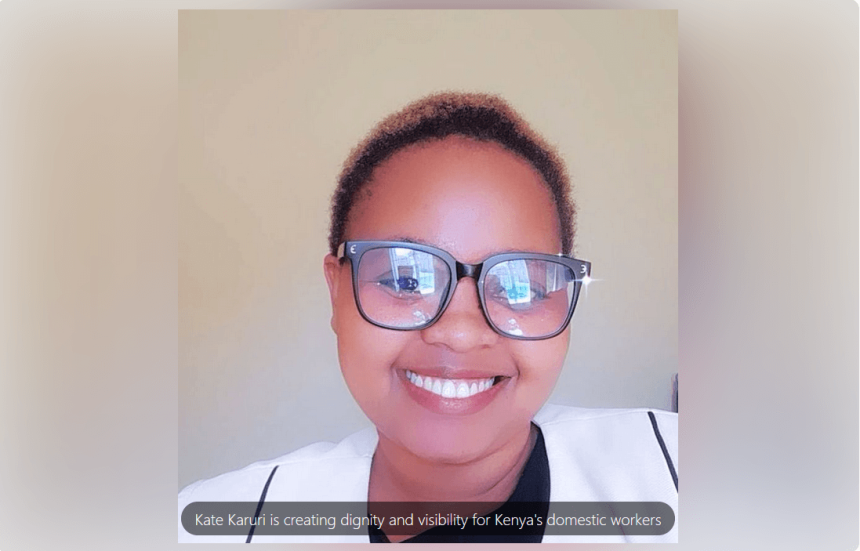Kate Karuri worked as a domestic worker in Kenya for over ten years before calling it a day.
During those ten years, she experienced firsthand how badly in-the-home domestic workers (known locally as housemaids, nannies, or house helps) were treated by their employers for failing to perform as expected.
“From my experience, I had noticed a recurrent behavioural and attitude change in domestic workers upon securing employment. I also saw how clients treated their workers when they entered their households, and both were not good,” Karuri said.
So in 2010, she set up a training institute in Nairobi, The Graceful Maids and Nannies, to coach domestic workers and their employers.
“We are not a domestic workers bureau, and our organisation operates differently from bureaus as we do not engage in the sourcing, selecting, and placing maids within households,” said Karuri.
Her organisation provides training services to already-employed domestic workers. And the training happens in the home, where the worker and employer feel comfortable.
“This gives the client security that their home is under the best care possible and gives the worker confidence to do their duties diligently,” said Karuri.
The training sessions include general etiquette, child development and first aid skills, often overlooked when hiring domestic workers.
“Kate trained me on everything housekeeping, and she taught me how to handle children and play with them,” explained Sophia Nyambura, one of the program’s graduates.
“She… taught me how to communicate effectively, which has made it easy for me to deal with different characters and made it so easier for me in the home I’m currently working in.”
Current statistics by the International Labour Organization show that Kenya, with a population of around 53 million, has about two million domestic workers. The Kenyan government permits 65 agencies to hire domestic workers.
But research suggests that very few know their rights or where to go for assistance.
Several laws in Kenya protect domestic workers’ rights, including the right to fair remuneration and reasonable working conditions. The law expects employers to also pay for their house helps’ National Security and Social Fund as well as their National Hospital Insurance Fund – which, researchers agree, most employers don’t adhere to.
Across Africa, the experience tends to be the same. Millions of women are employed informally in the sector, with little recourse to laws designed to protect employees and employers.
Karuri’s training programme helps with these issues by ensuring that training includes courses on rights and the law and furnishing graduates and their employees with sample contracts.
“Upon completion of the training, we furnish the client with a professionally drafted sample maid or nanny contract that accounts for minimum wages determined based on the worker’s years of experience and other relevant allowances,” she explained.
The contract serves as a comprehensive guide to fostering a conducive working and living environment for both parties, with provisions to accommodate potential amendments in the event of new recruitment.
She explained further that this ensures that both parties are covered, with little risk of misunderstanding.
“I am happy that Njoki, my domestic worker, got trained by Karuri because it made the transition of her working in our home easier, and my home was up and running as soon as she arrived,” said Nairobi resident, Evelyn Wambui.
“She uses household products without wastage, and she is very good at balancing housework and handling the kids. I also learnt about my responsibilities to her as her employer. The prior training reduced the friction I had experienced with other helps because Njoki knew what she was doing.”
Karuri quickly acknowledges that the training she supplies is only a first step and urges employers to continue empowering their house staff.
“If you can provide education or training opportunities for them, please do, as you are also empowering another family. Another woman,” she said.
As a parting shot, Karuri said she hopes for a future where domestic workers are treated with dignity, equality and respect.
“This is my small way of bringing dignity to this industry. By educating both employers and domestic workers,” she said.
bird story agency





